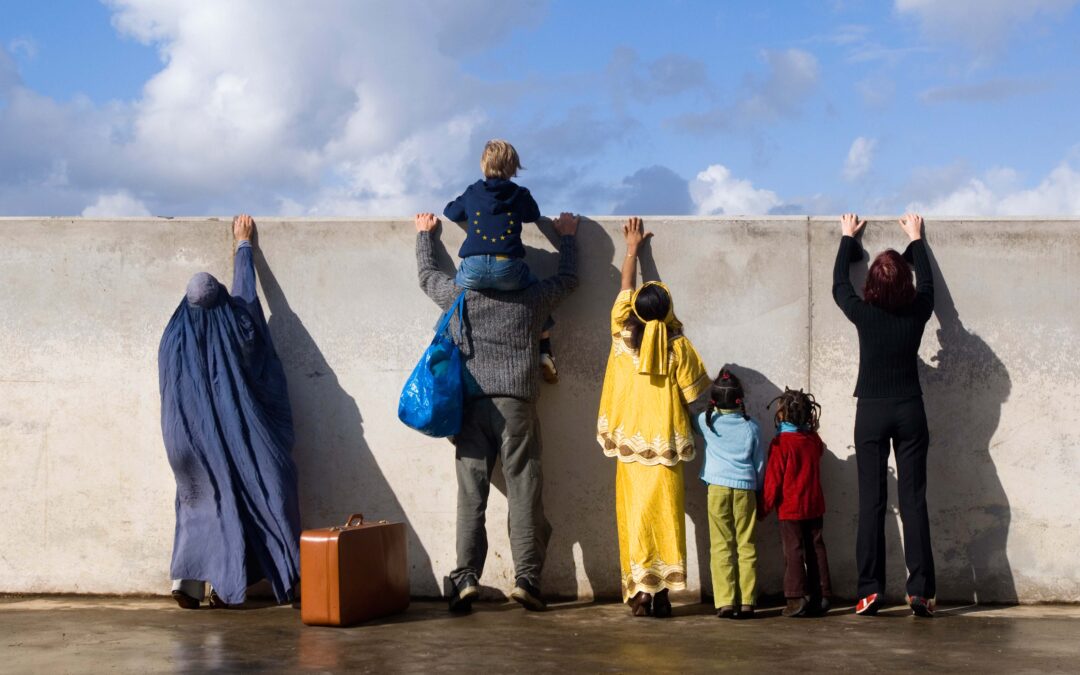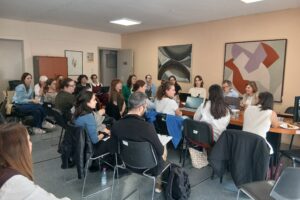
Feb 9, 2016
Today, the ICJ intervened before the European Court of Human Rights in two cases against the United Kingdom challenging the compliance of mass surveillance programmes with the European Convention on Human Rights.
The ICJ submitted third party interventions in the cases Big Brother Watch and others v. the United Kingdom and Bureau of Investigative Journalism and Alice Ross v. the United Kingdom.
In its interventions, the ICJ addressed:
- the scope of the rights to privacy and freedom of expression within the meaning of articles 8 and 10 ECHR and of their limitations in relation to metadata;
- the attribution of State responsibility under international law for Convention violations caused via mass or ‘bulk’ surveillance programmes, in particular those involving the gathering of metadata and the related positive obligations of states, and
- the application of the Convention to the extra-territorial dimensions of mass surveillance programmes on the enjoyment of these rights.
UK-ICJ-AmicusBrief-BBW&others-ECtHR-legalsubmission-2016 (download the intervention in BBW and others v UK)
UK-ICJ-AmicusBrief-BIJ&Ross-ECtHR-legalsubmission-2016 (download the intervention in BIJ and Ross v UK)

Feb 1, 2016
Today is the first of a four-day hearing at the UK Supreme Court in joined appeals from the High Court (Al-Waheed v Ministry of Defence) and the Court of Appeal (Ministry of Defence v Mohammed and Others), in which the ICJ intervened.
The case concerns the detention of persons in Iraq and Afghanistan during the non-international armed conflict phases of British military operations in those countries. Together with Human Rights Watch, Amnesty International and Open Society Justice Initiative, the ICJ submitted an intervention in the joined appeal, addressing:
- The complementary application of international humanitarian law (IHL) and international human rights law (IHRL) in situations of armed conflict.
- The lack of authority under IHL, whether treaty or customary law, for internment in situations of non-international armed conflict (NIAC), including consideration of the inapplicability in NIAC of internment rules that govern situations of international armed conflict.
- The requirement that detention in NIACs is compliant with IHRL, the implications of this and the key means by which internment can be lawful while also responsive to the exigencies of the situation.
UK-GlobalSecurity-DetentionArmedConflict-Advocacy-Legal submissons-2016-ENG (download the joint intervention)

Jan 15, 2016
Today, the ICJ submitted a third-party intervention in the case of M.B. v. Spain before the European Court of Human Rights.
The case arose from the attempted removal of a lesbian asylum applicant to Cameroon. The ICJ’s written submissions focus on the relevance of the Refugee Convention, as interpreted by a number of domestic courts, and the EU asylum acquis and the EU Charter of Fundamental Rights, to the determination of the scope and content of non-refoulement obligations under Article 3 of the European Convention on Human Rights (ECHR) of those Contracting Parties that are also EU Member States.
The ICJ’s intervention, in particular, addresses the following:
- the requirement of coerced (including self-enforced) concealment of one’s same-sex sexual orientation, which constitutes persecution under refugee law and is incompatible with the ECHR, in particular Article 3; and,
- the criminalization of consensual same-sex sexual conduct, which gives rise to a real risk of Article 3 prohibited treatment, thus triggering non-refoulement obligations under that provision of the ECHR.
Spain- ECtHR MB v Spain – advocacy – legal-submissions-2016-ENG

Dec 10, 2015
Esta información fue enviada para la sesión 71 del Comité, en enero 2016.
El informe de la CIJ busca brindar al Comité información complementaria sobre el cumplimiento por parte del Perú de sus obligaciones en virtud del artículo 3, párrafo 4, del Protocolo Facultativo sobre la Venta de Niños, la Prostitución infantil y el uso de niños en la pornografía, en relación a la responsabilidad legal de la persona jurídica o moral en el ordenamiento legal peruano.
El informe se centra únicamente en la falta de cumplimiento por el Estado parte de sus obligaciones en virtud del artículo 3, párrafo 4, del PFVN relativo a la responsabilidad penal, civil o administrativa de las personas jurídicas o morales en la legislación peruana.
El informe incluye posibles recomendaciones acerca de las medidas que el Perú debería tomar con el fin de cumplir plena y eficazmente sus obligaciones en virtud del PFVN.
Peru-CRC OPSC Submission-Advocacy-Legal submission-2015-SPA (full text in PDF)

Nov 23, 2015
Today, the ICJ, the AIRE Centre, Amnesty International and the European Council on Refugees and Exiles jointly intervened before the European Court of Human Rights in a case against Spain on the denial of entry of asylum seekers in the enclave of Melilla.
The four human rights organisations argued that the European Convention on Human Rights prohibits refusal of entry, and/or return of a person to face serious violations of human rights, including of the right to life, the prohibition of torture or inhuman or degrading treatment or punishment, or flagrant denial of justice and of the right to liberty. They submitted that these refusals of entry are also contrary to the rights set out in the EU Charter of Fundamental Rights (CFR) and the prohibition on non-refoulement found in the 1951 Geneva Convention on the Status of Refugees (Refugee Convention).
The joint interventions presents the argument that, for these prohibitions to be practical and effective and not theoretical and illusory, Contracting Parties must have in place effective systems for identifying people within their jurisdiction who are entitled to benefit from the prohibition on refusing entry.
Spain-ICJ&others-AmicusBrief-ND&NT-ECtHR-legalsubmission-2015 (download the third party intervention)









